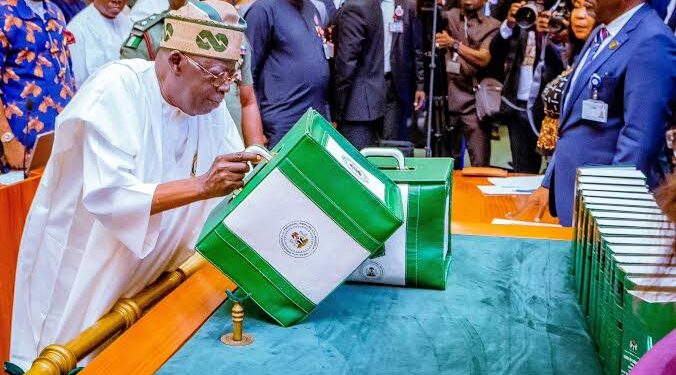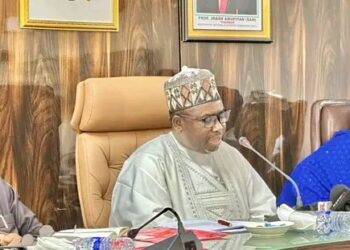Security and defence, infrastructure, health and education were some of the sectors with high allocations in the N47.9tn Budget Proposal presented by President Bola Tinubu before a joint session of the National Assembly on Wednesday afternoon.
“It is with great pleasure that I lay before this distinguished joint session of the National Assembly, the 2025 Budget of the National Assembly of Nigeria titled, ‘The Resurrection Budget’ security peace, building prosperity,” Tinubu said as he concluded his 30-minute speech at 1:10pm on Wednesday.
Earlier in his presentation, the President listed some of the highlights of the budget as defence and security – N4.91tn, infrastructure – N4.06tn, health – N2.4tn, education – N3.5tn, among others.
He expressed commitment to economic renewal, thanking all Nigerians for embarking on the journey of reform and transformation in the last 18 months together.
Tinubu stressed that food security is non-negotiable, adding that the government is taking steps to ensure Nigerians feed and not go to bed hungry.
Tinubu said, “Our 2025 is not just another statement of projected government revenue and expenditure; it is one that calls for action.
“Our nation faces existential threat from corruption and insecurity…These challenges are surmountable when we work collaboratively. We must re-write the narrative of this nation.
“The time for lamentation is over. The time to act is act is now.”
Tinubu was accompanied to the budget presentation by the Secretary to the Government of the Federation (SGF), George Akume; and the Chief of Staff to the President, Femi Gbajabiamila; among other top government officials.
The presentation was expected to take place on Tuesday but that was moved to Wednesday after a meeting of the Federal Executive Council (FEC) held on Monday at the Presidential Villa in Abuja.
Channels











